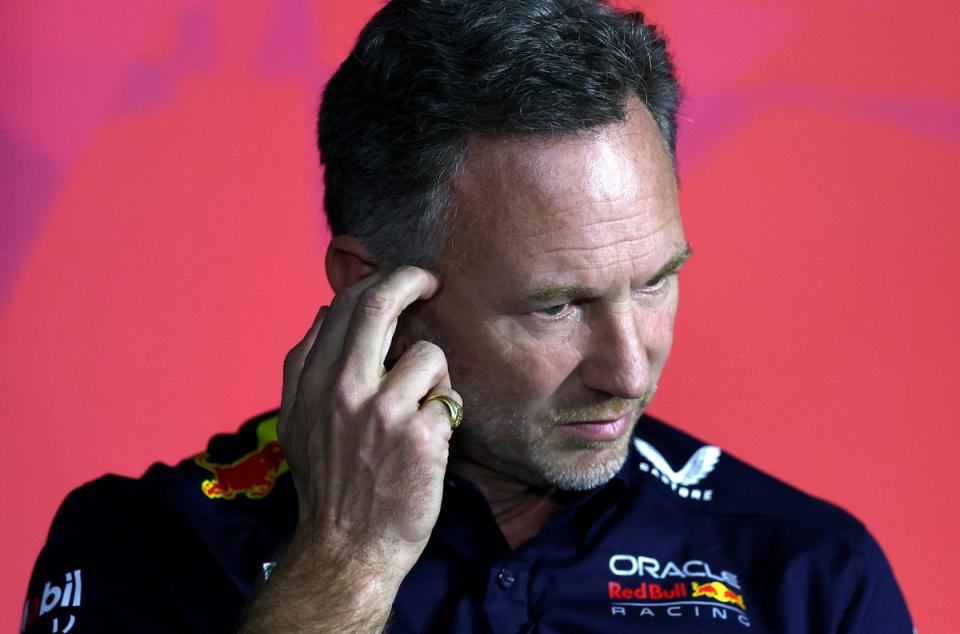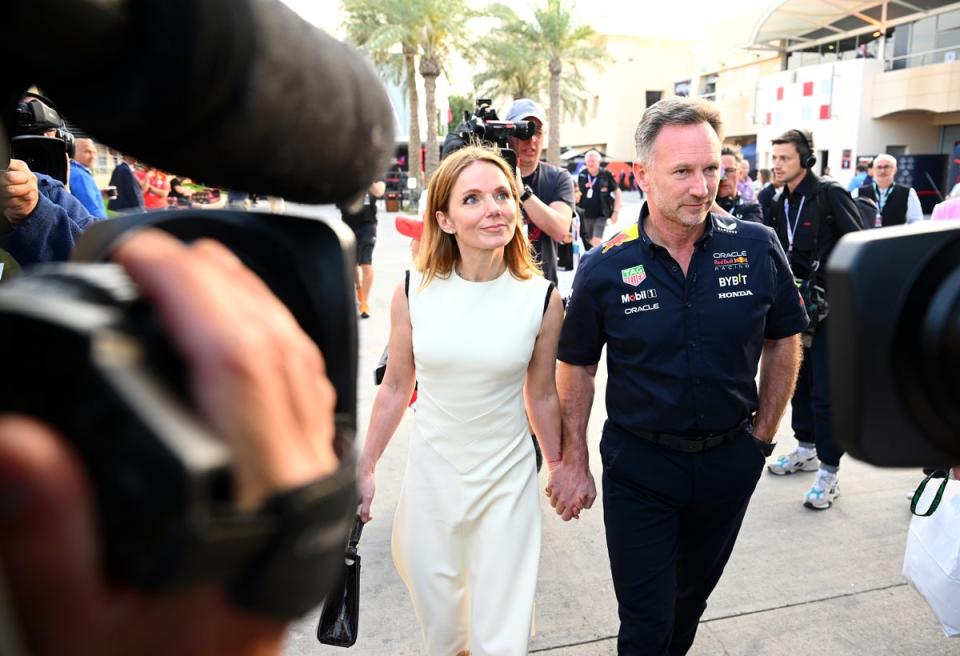On International Women’s Day, Red Bull’s suspension of Christian Horner’s accuser is truly shocking
Another day in Formula 1’s never-ending soap opera – and another day further away from a conclusion to a story which threatens to rip Red Bull, and the sport, apart.
To recap the latest developments, early on Thursday it emerged that the female colleague, who raised allegations of “inappropriate, coercive behaviour” against Red Bull F1 boss Christian Horner which were cleared by an internal probe, had been suspended on full pay by Red Bull Racing.
While we don’t yet know the grounds for her suspension and whether it could be lifted, the optics of this situation, now, are beyond unpalatable. It is shocking that Formula 1 – a sport that has prided itself on making such strides on inclusivity and diversity in recent years – has allowed the matter to stretch to this point. The message it sends, on the eve of the all-female racing series F1 Academy starting its second season on International Women’s Day, is truly terrible.
It implies to women: stay quiet. Don’t speak up against the behaviour of senior personnel in your place of work. If you do, prepare for your own job to be at risk, rather than the alleged perpetrator.
The accuser was working in her role as late as Monday at their base in Milton Keynes, but will now be considering her legal options, likely an appeal or maybe even an employment tribunal.
But officially from Red Bull? Nada. No formal statement. No explanation. Just the usual drips and drabs which have characterised this whole month-long saga, alongside the usual chinese whispers between team personnel and journalists. Another example of corporate opaqueness which has summed up this entire process.
Throughout, Red Bull have stuck to the formalities of the internal investigation, sticking to lines of “no comment” and confidentiality. It was a tone Horner repeated again on Thursday, when he instead demanded the end to intrusion on his wife Geri Halliwell and his family.
Intrusion, we hasten to add, he has brought on all himself. In usual circumstances, an employee under investigation would face suspension, at least on a temporary basis. But Horner has stayed at his post, doggedly in front of the camera and without any sense of contrition, throughout numerous high-profile team sessions, media interviews and last week’s season-opening grand prix.

Intrusion encouraged, too, when he accompanied Geri hand-in-hand into the Bahrain paddock. They did not arrive together: Horner was present at the Red Bull hospitality unit hours before. Such a show of unity is of course well within their rights – but to expect the cameras not to capture the moment and journalists not to scrutinise in search for the detail is completely out of touch with reality.
Geri, incidentally, is now expected to be present this Saturday at the Saudi Arabian Grand Prix in Jeddah. Don’t take any photos, though.
More significantly than Horner’s victim complex is the damage this episode is having, day-by-day, on the carefully caricatured product F1 has built in the last few years, particularly in this new Netflix-era. A sport seemingly open to change, away from the billion-pound boys club of yesteryear.

F1 and the FIA have also given no formal comment on the situation. The stakeholders and governance of such a worldwide sport staying quiet on this case is unhelpful, instead raising more questions as to where their allegiances lie. Instead, we hear murmurs that FIA president Mohammed Ben Sulayem – himself under investigation from his own body – told Max Verstappen to support Horner publicly last week in Bahrain. Verstappen, matching his team, refused to detail what was said to him from Ben Sulayem.
The sub-plot to this complaint – the revelation of intra-team politics involving the Verstappen entourage, Helmut Marko and the parent company in Salzburg against Horner and Thai majority owner Chalerm Yoovidhya – had in the last few days become the lead. It is easy to forget, however, that at the heart of this is a woman complaining to HR about the behaviour of a male superior, which possibly includes messages of a sexually suggestive nature.
The damage this has caused to Red Bull’s brand, in the midst of an unprecedented run of success on track, is now undeniable. Partners will be keeping a close eye on the next developments, as will their star driver and his father. Red Bull’s sister team, RB, decided to ignore the beat of the day and list all the women within their outfit on the side of their car ahead of International Women’s Day with the message: “You make the difference.”
The irony is palpable. But for F1, the whole saga is becoming perilous. Slowly but surely, it is undoing all the genuinely good work the sport has done to increase the visibility of women and ethnic minorities, alongside making the paddock a safe and welcoming space of work. More transparency is desperately needed.

 Yahoo News
Yahoo News 
